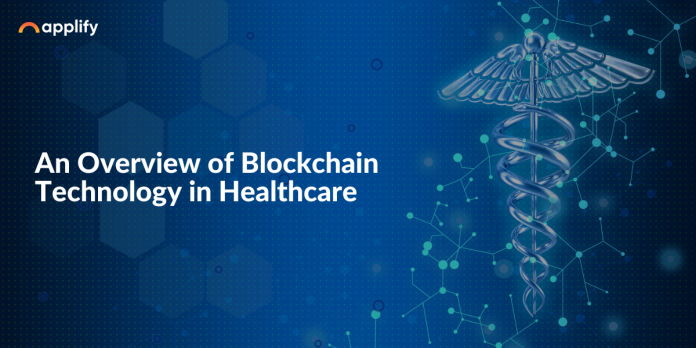Moreover, blockchain technology is a distributed, decentralized ledger that can store data securely and transparently, making it an ideal technology for healthcare. By improving data sharing and securing medical records, blockchain technology can improve patient outcomes, making healthcare more efficient, transparent, and secure.
How can blockchain solve healthcare challenges?
Here are some ways blockchain technology can solve healthcare challenges and potential use cases.
1. Data Silos
One of the most significant challenges in healthcare is data silos, where patient data is stored in different systems and not shared among healthcare providers. This can lead to inefficiencies in care delivery, duplication of tests and procedures, and patient safety concerns.
Utilizing blockchain technology can achieve secure and interoperable data sharing in healthcare.
2. Quality patient outcomes
The medical industry has been slow to adopt new technologies, but blockchain technology is gaining momentum due to its potential to improve the quality of care and patient outcomes. Blockchain medical records (EMRs) and patient data, improve clinical trials and facilitates secure data sharing in healthcare.
3. Secures EMRs
Furthermore, blockchain can secure EMRs by creating a tamper-proof, transparent record of all patient interactions with the healthcare system.
In this way, the blockchain records any changes made to a patient’s record and traces them back to the original source, preventing medical errors, reducing the risk of fraud and abuse, and ensuring patient privacy.
4. Efficient clinical trials
Clinical trials are a critical part of the drug development process, but they can be time-consuming and expensive. Additionally, blockchain technology can improve the efficiency of clinical trials by providing a secure, transparent platform for data sharing. This allows researchers to access patient data more quickly and accurately, leading to faster drug development and improved patient outcomes.
Secured data sharing
Blockchain tech can also facilitate secure data sharing among healthcare providers. This can be particularly useful in emergencies when patient data access can be critical. By enabling secure, real-time data sharing, blockchain technology can improve patient outcomes and save lives.
Challenges

Although blockchain holds potential benefits in healthcare, it is crucial to address the challenges it poses.
1. Compliance
Therefore, one of the most significant challenges for new technology in the highly regulated healthcare industry is regulatory compliance. Strict regulations ensure patient safety and privacy, making compliance mandatory.
2. Interoperability
Blockchain technology is still in its early stages, and different platforms may not be compatible with each other. This could create data silos, which would undermine the benefits of blockchain technology.
Conclusion
Furthermore, as the tech continues to evolve, we can expect to see more applications of blockchain technology in healthcare that will improve patient outcomes and save lives. With its potential to revolutionize the healthcare industry, blockchain technology can improve data sharing, secure EMRs, and patient data, and facilitate clinical trials. While there are still some challenges that need to be addressed, the benefits of blockchain technology in healthcare are clear.









